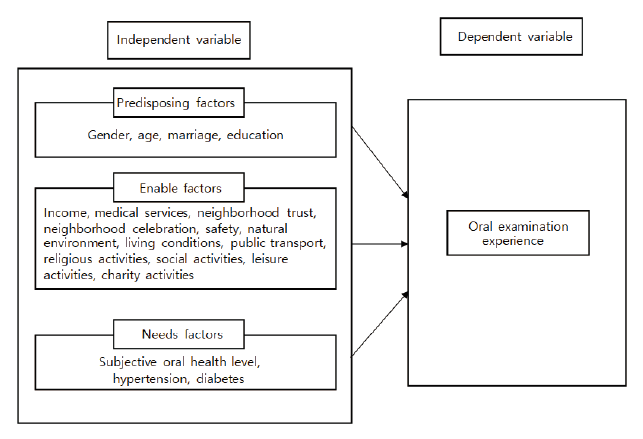Abstract
Objectives: This study aimed to understand the effect of factors, possibilities, and desires on oral examination experience behavior of the elderly using raw data from the 2017 Community Health Survey. Methods: Hierarchical logistic regression analysis, an analysis method that controls the input order of a series of independent variables, was performed for 67,835 senior citizens aged 65 and older. Results: In terms of predisposing factors-in women, the higher the level of education, the higher the oral examination practice rate, and the lower the oral examination practice rate in divorce and bereavement among those aged 75 years or older. Regarding enabling factors, the lower the income rating, the higher the oral examination experience rate in religious and social participants as well as, leisure and charity participants, and the lower the oral examination experience rate in the natural environment. Regarding the need factors, the oral examination practice rate was high when the subjective oral health level was recognized as good. Conclusions: As a result, Anderson’s model confirmed that various factors affect oral examination experience behavior, and institutional support for policy consensus is needed to promote oral examination experience behavior in older people in various directions.
Figures & Tables

Fig. 1. Study model


